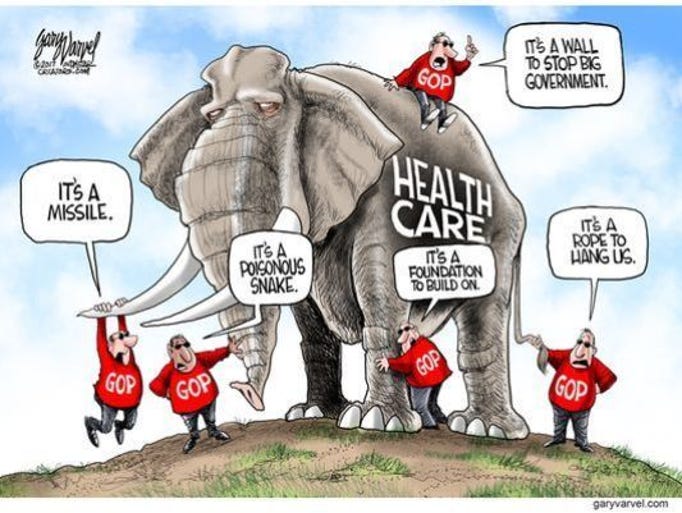an ongoing discussion/moment of clarity.
words.
"...The hospitals I visited all told me they devoted enormous resources – as much as half of all administrative staff, in one case – to chasing claims. Patient care in American is in this way consistently reduced to a ludicrous and irrational negotiation of two competing professional disciplines: medicine, and extracting money from insurance companies.
Patients get trapped between hospitals that overcharge for simple procedures and insurers who deny coverage for serious ones. Administrative costs and profit are two of the bigger factors explaining why Americans spend about twice as much per person or more on health care compared with other industrialized countries, but get consistently worse results.
Ideas like a single-payer system, or ending the antitrust exemption for insurance companies, would be obvious fixes. But when they came up during the Obamacare debate, they were dismissed as politically unfeasible and/or too costly. Because the United States will not do what other countries do as a matter of course – declare health care to be a universal human right and work backward from that premise – we are continually stuck with patchwork political solutions that protect insurance and pharmaceutical company profits while leaving masses of people uninsured.
...Health care is absolute human right. On a policy level we already recognized this decades ago, during the height of the Reagan era, when the Emergency Medical and Treatment Labor Act made it illegal for public and private hospitals alike to turn patients away in an emergency. There is simply no moral justification for denying aid to a sick or dying person. Any country that does so systematically is not a country at all.
Let's hope the awful Trump era awakens us to the broader issue. The sad thing is that doing the right thing is also the smart thing. As other countries have already discovered, universal coverage systems that put the right incentives back into health care greatly reduce costs and waste. Getting there isn't "unrealistic." It's necessary, morally and otherwise."
ROLLING STONE: Finally Everyone Agrees: Health Care Is a Human Right

No comments:
Post a Comment